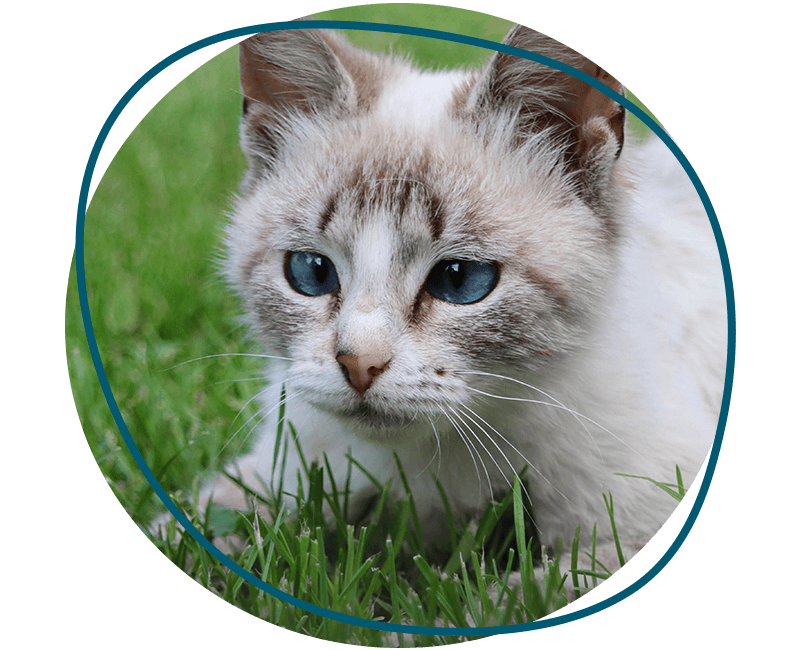- (919) 646-4100
- 1239 NW Maynard Rd, Cary, NC, 27513
- Mon - Sun: 8am - 7pm
Cold Weather Myths: What Every Pet Owner Should Know About Winter Pet Care
When winter rolls in and temperatures drop, it’s natural for pet owners to question how to best care for their furry companions. While some assume pets are naturally equipped to handle the cold, many common beliefs about winter pet care can be misleading. Let’s uncover the most common myths and provide practical tips to ensure your pet stays happy and healthy this winter.
1. Myth: Pets with Thick Fur Don’t Get Cold
It’s easy to think that a thick coat of fur is all a pet needs to stay warm in the winter. While fur does provide insulation, it’s not a perfect shield against freezing temperatures. Breeds like Huskies and Malamutes are better suited for cold weather, but even they can be at risk of frostbite or hypothermia in extreme conditions.
To ensure your pet is ready for the colder months, consider scheduling a wellness checkup at Maynard Animal Hospital. Our Wellness Plans include regular health assessments to keep your furry friend in peak condition all year round.
Tip: Limit outdoor exposure for all pets during freezing temperatures, and provide a warm, dry place indoors. If you have a short-haired breed, consider investing in a pet sweater or jacket for extra warmth during walks.
2. Myth: Pets Don’t Need as Much Water in Winter
Dehydration is often associated with hot weather, but it’s just as important to keep your pet hydrated in the colder months. Dry winter air and indoor heating can cause dehydration, and pets still need water to maintain healthy bodily functions.
Tip: Always provide fresh water for your pet and monitor their drinking habits. If your pet spends time outdoors, make sure their water bowl doesn’t freeze. Using a heated bowl can help in colder climates.
3. Myth: Fleas and Ticks Aren’t a Problem in Winter
Many pet owners believe that parasites like fleas and ticks die off in cold weather, but that’s not entirely true. These pests can survive inside homes or latch onto pets during warmer winter days. In fact, ticks can be particularly active in cooler months.
Tip: Continue using flea and tick prevention throughout the winter. Regular grooming and vet-recommended treatments can help keep parasites at bay.
Learn more about preventing ticks on pets from the Centers for Disease Control and Prevention (CDC).
4. Myth: All Pets Are Fine Sleeping Outdoors in Winter
While some pets may enjoy spending time outdoors, leaving them outside overnight during winter is dangerous. Prolonged exposure to the cold can lead to hypothermia, frostbite, or worse, even for breeds accustomed to lower temperatures.
Tip: If your pet must stay outside for any reason, ensure they have a well-insulated shelter that is elevated off the ground, waterproof, and free from drafts. However, the safest place for any pet during winter is indoors.
5. Myth: Pets Don’t Need Exercise in Winter
Colder weather doesn’t mean your pet’s activity levels should take a break. Regular exercise is vital for maintaining a healthy weight, keeping joints flexible, and preventing boredom. However, icy conditions and snow can create challenges for outdoor activities.
Tip: Engage your pet with indoor games or activities if the weather outside is too harsh. For dogs, short, supervised walks or play sessions in a secure yard can help burn energy without overexposure to the cold.
6. Myth: Cats and Small Dogs Are Safer Indoors, So They Don’t Need Winter Health Checkups
Even pets that spend most of their time indoors can face winter-related health challenges. Dry skin, respiratory issues from heating systems, and reduced physical activity can impact their overall health.
Tip: Schedule a wellness checkup at Maynard Animal Hospital to ensure your pet is in peak condition this winter. Preventive care, such as vaccines and parasite prevention, is crucial for pets of all sizes and lifestyles.
For more information on preventive care, visit the American Veterinary Medical Association (AVMA).
7. Myth: Pets Don’t Feel the Effects of Salt and Ice on Their Paws
Snow, ice, and road salt can irritate your pet’s paws, causing dryness, cracking, or chemical burns. Without proper care, these issues can lead to discomfort or even infections.
Tip: After walks, gently clean your pet’s paws with a damp cloth to remove salt or ice. Consider using pet-safe paw balms to keep their pads moisturized and protected. If the weather is especially harsh, pet boots can provide an added layer of protection.
Understanding the truth behind these winter myths can make a big difference in your pet’s health and comfort during the colder months. By taking a few simple precautions and staying informed, you can ensure your furry friend thrives, no matter how low the temperature drops.
Winter is the perfect time to prioritize your pet’s health. At Maynard Animal Hospital, we offer customized Wellness Plans, essential Vaccines, and comprehensive Wellness & Preventative Care to ensure your furry companion thrives through every season. Contact us today to schedule a visit.

All Pet Needs Under One Roof
Compassionate veterinary care in Cary
Maynard Animal Hospital provides compassionate, high-quality veterinary care for dogs and cats in Cary, Apex, Raleigh, and the surrounding areas.

Maynard Animal Hospital provides compassionate, high-quality veterinary care for dogs and cats in Cary.
Quick Links

Hours
Open 7 Days a Week
Mon - Sun: 8am - 7pm
Mon - Sun: 8am - 7pm





